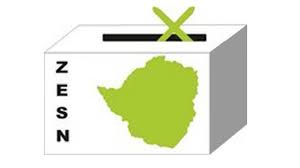The Zimbabwe Election Support Network (ZESN) has expressed concern over new dates set by the government for conducting the national population census and delimitation exercise.
Cabinet announced in its press briefing that the census will start in April 2022 and results are expected in August 2022.
This would pave way for the delimitation of constituencies in October 2022, with December 31, 2022, set as the last day allowed for delimitation exercise.
According to Cabinet, the country was on course to conduct the census within the prescribed time frame for the 2023 elections.
However, ZESN said the outcome of the delimitation process may become academic if the exercise is completed six months before the elections, making it impossible for the Zimbabwe Electoral Commission (ZEC) to use the new boundaries for the harmonised elections scheduled for July 2023.
But since it was necessary to conduct a population census and delimitation process, ZESN argued that the three-month window from October to December 2022 during which delimitation would take place was limited.
The delimitation exercise is prescribed under section 161 (1) of the Constitution on Delimitation of Electoral Boundaries; which provides that; “Once every ten years, on a date or within a period fixed by the Commission so as to fall as soon as possible after a population census, ZEC must conduct a delimitation of the electoral boundaries into which Zimbabwe is to be divided.”
ZESN said delimitation comes at a time when civic society organisations are pushing for electoral reforms ahead of the 2023 polls and the exercise is one of the key electoral reforms with a bearing on the credibility of electoral outcomes.
ZESN believes the census provides a useful resultant dataset in the delimitation exercise which could help in improving the integrity of the delimitation exercise.
“However, mindful of the provisions of Section 161 (2) which postulates that: ‘If a delimitation of electoral boundaries is completed less than six months before polling day in a general election, the boundaries so delimited do not apply to that election, and instead of the boundaries that existed immediately before the delimitation are applicable,” ZESN noted, explaining it would be impossible for ZEC to use the drawn boundaries for July 2023 elections, if delimitation was completed six months before the elections.
ZESN said assuming that the 2023 elections are held as provided for in the Constitution under Section 143 on Duration and Dissolution of Parliament, the electoral network is concerned that the timelines proposed by Cabinet are likely to compromise the quality of the delimitation process.
“Parliament is elected for a five-year term which runs from the date on which the President-elect is sworn in and assumes office in terms of Section 94 (1) (a), and parliament stands dissolved at midnight on the day before the first polling day in the next general election called in terms of Section 144,” ZESN said.
“Taking into account that the current electoral boundaries are arguably no longer representative of the voters with the last delimitation exercise conducted in 2008,” ZESN urges the government to give ZEC more time to conduct a “thorough and quality process so that new electoral boundaries can be used in the next election.”
The electoral network called upon the government to bring forward the start date of the census so that the delimitation exercise is completed before December 2022.
“Boundary delimitation must be open, transparent and inclusive. Citizens and electoral stakeholders must be consulted and involved. However, the three-month window from October to December 2022 during which delimitation will be taking place is too short and too tight and the opportunity to build confidence, trust and ownership of the process, through the engagement of citizens and key electoral stakeholders will be lost,” ZESN said.
“Compounding the situation is the absence of clarity on the process, what could possibly be done simultaneously with the census if any, and a predictable boundary delimitation calendar, making it difficult for stakeholders to plan accordingly and contribute meaningfully to the process.”
ZESN urged both the government and ZEC to take the impending delimitation exercise seriously in order to avoid contested election boundaries, “which may yet again result in contested elections.”

